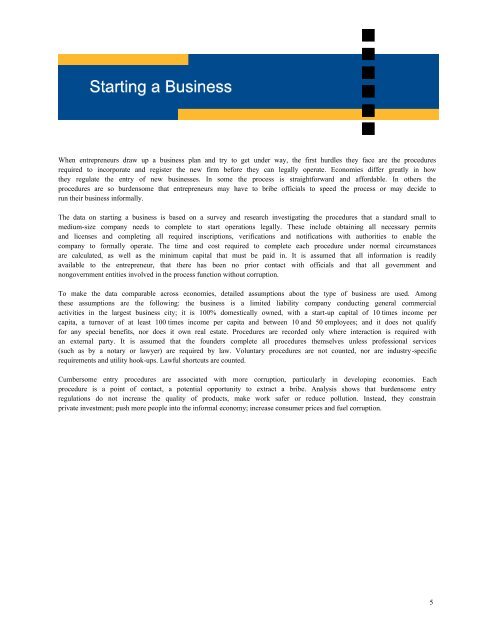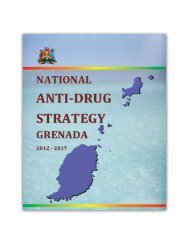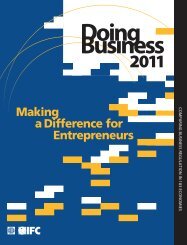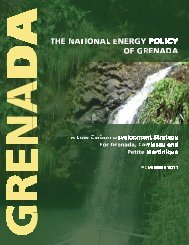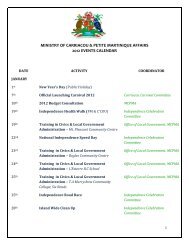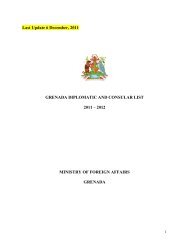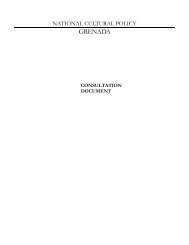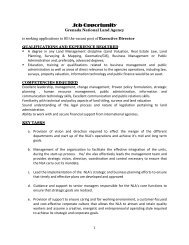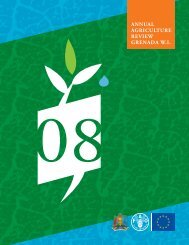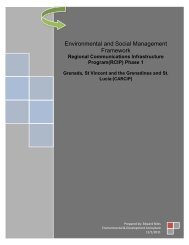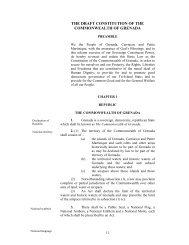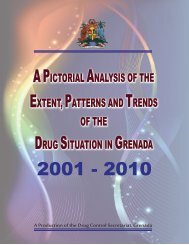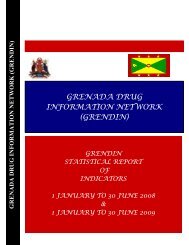Doing Business 2009 - Government of Grenada
Doing Business 2009 - Government of Grenada
Doing Business 2009 - Government of Grenada
Create successful ePaper yourself
Turn your PDF publications into a flip-book with our unique Google optimized e-Paper software.
When entrepreneurs draw up a business plan and try to get under way, the first hurdles they face are the procedures<br />
required to incorporate and register the new firm before they can legally operate. Economies differ greatly in how<br />
they regulate the entry <strong>of</strong> new businesses. In some the process is straightforward and affordable. In others the<br />
procedures are so burdensome that entrepreneurs may have to bribe <strong>of</strong>ficials to speed the process or may decide to<br />
run their business informally.<br />
The data on starting a business is based on a survey and research investigating the procedures that a standard small to<br />
medium-size company needs to complete to start operations legally. These include obtaining all necessary permits<br />
and licenses and completing all required inscriptions, verifications and notifications with authorities to enable the<br />
company to formally operate. The time and cost required to complete each procedure under normal circumstances<br />
are calculated, as well as the minimum capital that must be paid in. It is assumed that all information is readily<br />
available to the entrepreneur, that there has been no prior contact with <strong>of</strong>ficials and that all government and<br />
nongovernment entities involved in the process function without corruption.<br />
To make the data comparable across economies, detailed assumptions about the type <strong>of</strong> business are used. Among<br />
these assumptions are the following: the business is a limited liability company conducting general commercial<br />
activities in the largest business city; it is 100% domestically owned, with a start-up capital <strong>of</strong> 10 times income per<br />
capita, a turnover <strong>of</strong> at least 100 times income per capita and between 10 and 50 employees; and it does not qualify<br />
for any special benefits, nor does it own real estate. Procedures are recorded only where interaction is required with<br />
an external party. It is assumed that the founders complete all procedures themselves unless pr<strong>of</strong>essional services<br />
(such as by a notary or lawyer) are required by law. Voluntary procedures are not counted, nor are industry-specific<br />
requirements and utility hook-ups. Lawful shortcuts are counted.<br />
Cumbersome entry procedures are associated with more corruption, particularly in developing economies. Each<br />
procedure is a point <strong>of</strong> contact, a potential opportunity to extract a bribe. Analysis shows that burdensome entry<br />
regulations do not increase the quality <strong>of</strong> products, make work safer or reduce pollution. Instead, they constrain<br />
private investment; push more people into the informal economy; increase consumer prices and fuel corruption.<br />
5


